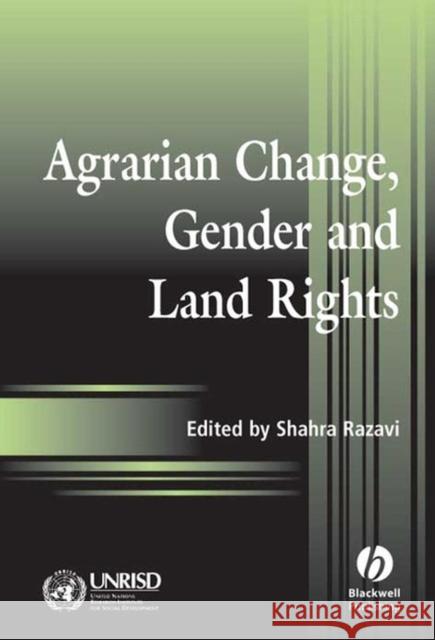Agrarian Change, Gender and Land Rights » książka
topmenu
Agrarian Change, Gender and Land Rights
ISBN-13: 9781405110761 / Angielski / Miękka / 2003 / 308 str.
Leading feminist scholars provide searching treatment of the long-neglected subject of gender and access to land in various regions around the world.
- A searching treatment of gender and access to land around the world.
- Includes contributions by leading feminist scholars in the field.
- Combines theoretical reflections with concrete case studies.
- Covers diverse regions, including sub-Saharan Africa, Latin America, South Asia and Central Asia.
- Several articles are based on original and extensive field research carried out over the past two years in, for example, South Africa, Uzbekistan and Brazil.











